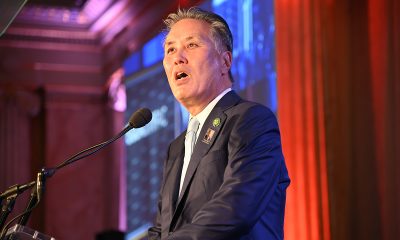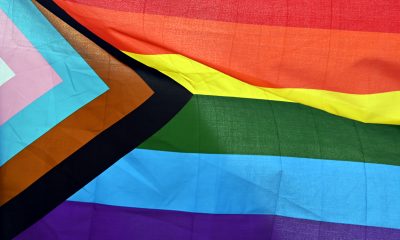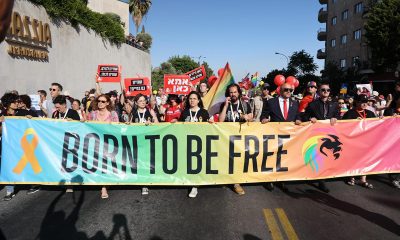Africa
Prominent Ugandan activist stabbed
Steven Kabuye attacked near his home on Wednesday
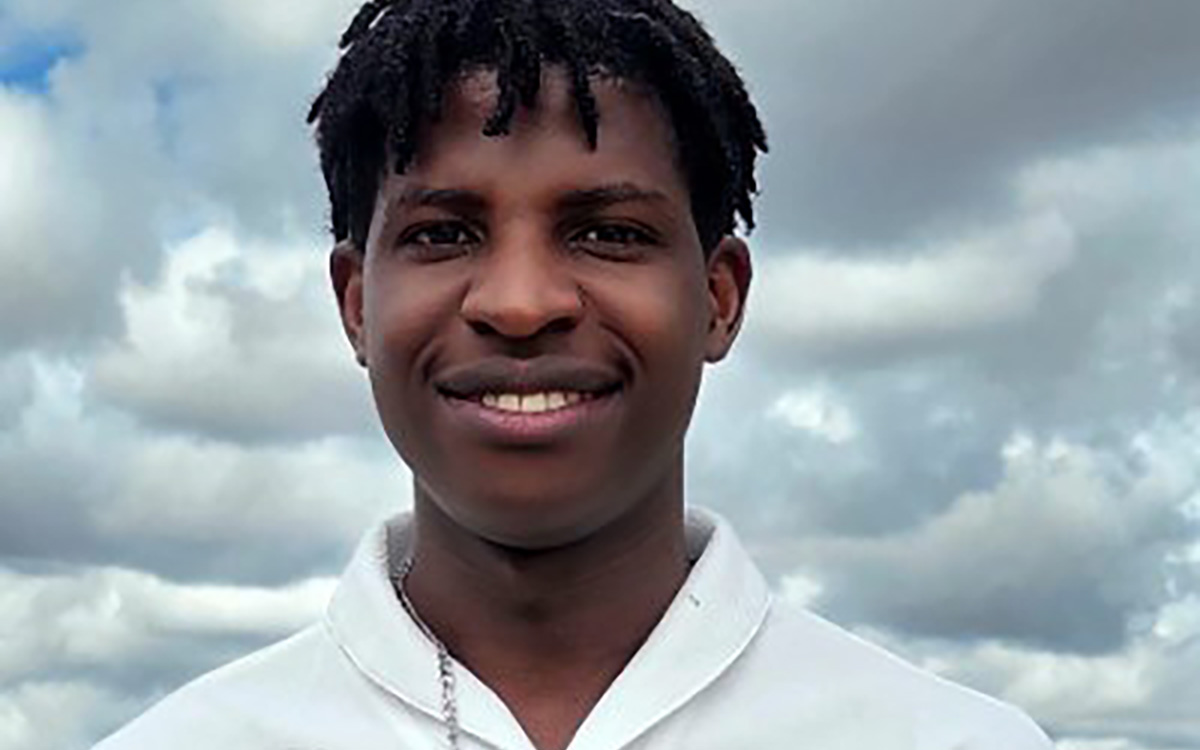
A prominent Ugandan activist was stabbed on Wednesday.
A video posted to Coloured Voice Truth to LGBTQ Uganda Co-Executive Director Steven Kabuye’s X account shows him on the ground writhing in pain with a deep laceration on his right forearm and a knife embedded in his stomach.
Coloured Voice Truth to LGBTQ Uganda Advocacy Officer Hans Senfuma on X wrote two “unknown individuals who were on a motorcycle” stabbed Kabuye at around 8 a.m. (Reuters reported the attack took place close to Kabuye’s home when he was going to work.)
“Steven claims that these two guys intentions’ were to kill him, not robbing and also claims that it seems they have been following him for up to several days,” wrote Senfuma.
Senfuma later posted to his X account pictures of Kabuye holding his arm while laying on a bloody bed sheet in what appears to be a hospital room. Senfuma in the post wrote that Kabuye was out of surgery.
Reuters reported that Coloured Voice Truth to LGBTQ Uganda said Kabuye is in critical condition.
“This morning, a Uganda LGBTQ community activist was brutally attacked with a knife,” said Sexual Minorities Uganda Executive Director Frank Mugisha after the attack. “[Kabuye is] currently undergoing surgical treatment, we stand with the activist and hope for a full recovery. Haterade and hate crimes have no place in Uganda. We urge the police to conduct a thorough investigation.”
The attack took place less than seven months after Ugandan President Yoweri Museveni signed his country’s Anti-Homosexuality Act, which contains a death penalty provision for “aggravated homosexuality.”
The State Department a few weeks after the Anti-Homosexuality Act took effect announced visa restrictions against unnamed Ugandan officials. The World Bank Group in August announced the suspension of new loans to Uganda.
The Biden-Harris administration removed Uganda from a program that allows sub-Saharan African countries to trade duty-free with the U.S. and has issued a business advisory for the country over the Anti-Homosexuality Act. Secretary of State Antony Blinken last month announced sanctions against current and former Ugandan officials who committed human rights abuses against LGBTQ people and other groups.
Uganda’s Constitutional Court on Dec. 18 heard arguments in a lawsuit that challenges the Anti-Homosexuality Act.
Republican congressman defends Anti-Homosexuality Act
Kabuye’s assailants stabbed him days after reports emerged that U.S. Rep. Tim Walberg (R-Mich.) defended the Anti-Homosexuality Act in a speech he gave at Uganda’s National Prayer Breakfast.
The event took place in Uganda on Oct. 8.
The Young Turks reported the Fellowship Foundation, which organizes the National Prayer Breakfast in D.C., paid for Walberg’s trip to Uganda. The Young Turks article also notes Museveni was among those who attended the Oct. 8 event.
Walberg’s office has not responded to the Washington Blade’s request for comment.
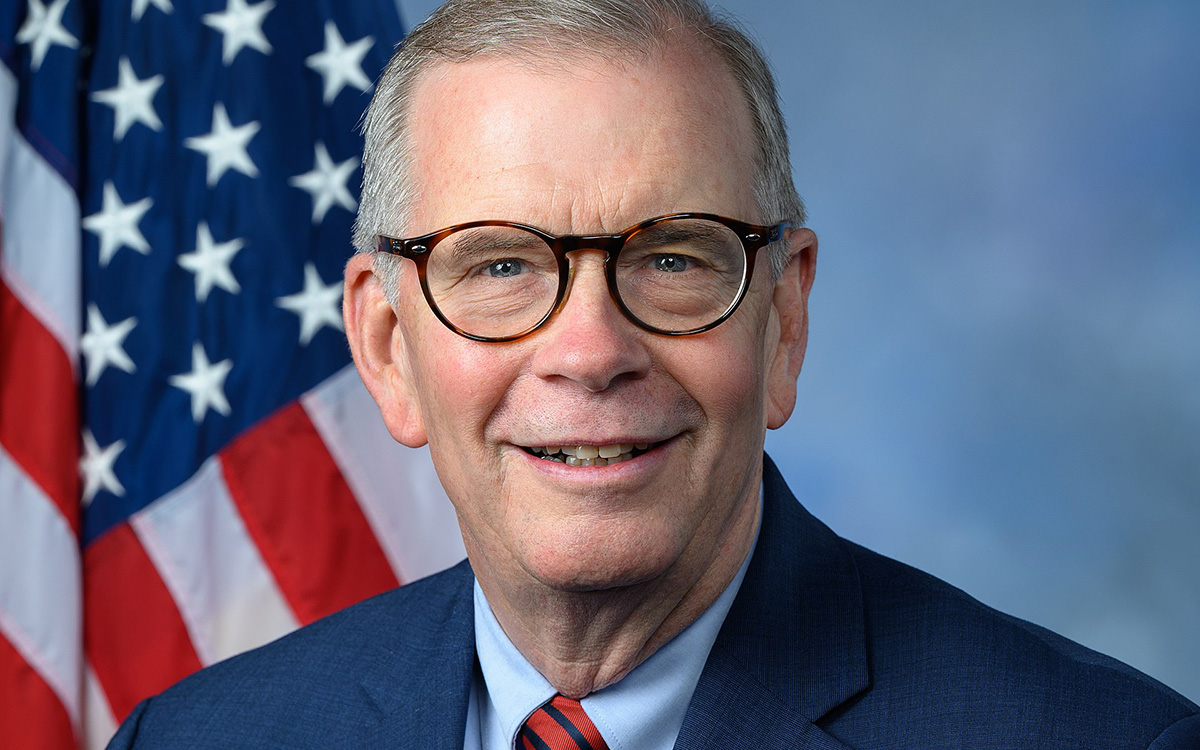
Africa
Lesbian South African MP named to country’s new Cabinet
Steve Letsike won a seat in the National Assembly on May 29
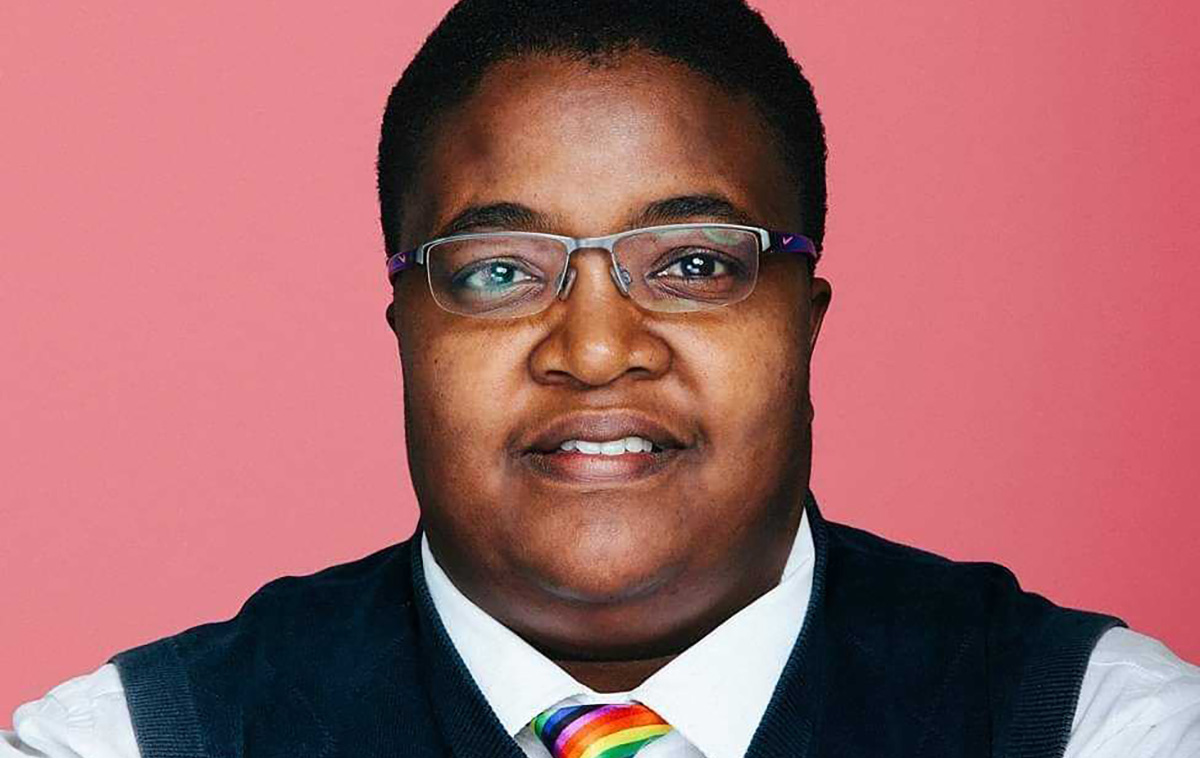
South African President Cyril Ramaphosa on Sunday appointed lesbian MP Steve Letsike to his Cabinet.
Letsike, founder of Access Chapter 2, a South African advocacy group who is a member of the African National Congress that Ramaphosa leads, will be the country’s deputy minister of women, youth, and people with disabilities.
Letsike won a seat in the South African National Assembly in national and provincial elections that took place on May 29.
The ANC lost its parliamentary majority that it had had since Nelson Mandela in 1994 won the South African presidency in the country’s first post-apartheid elections. Ramaphosa on Sunday announced Letsike and other new Cabinet members after the ANC and nine other parties agreed to form a National Unity Government.
The Washington Blade has reached out to Letsike for comment.
Africa
Congolese justice minister orders prosecutor general to arrest LGBTQ allies
Constant Mutamba issued directive on June 15, implementation unclear
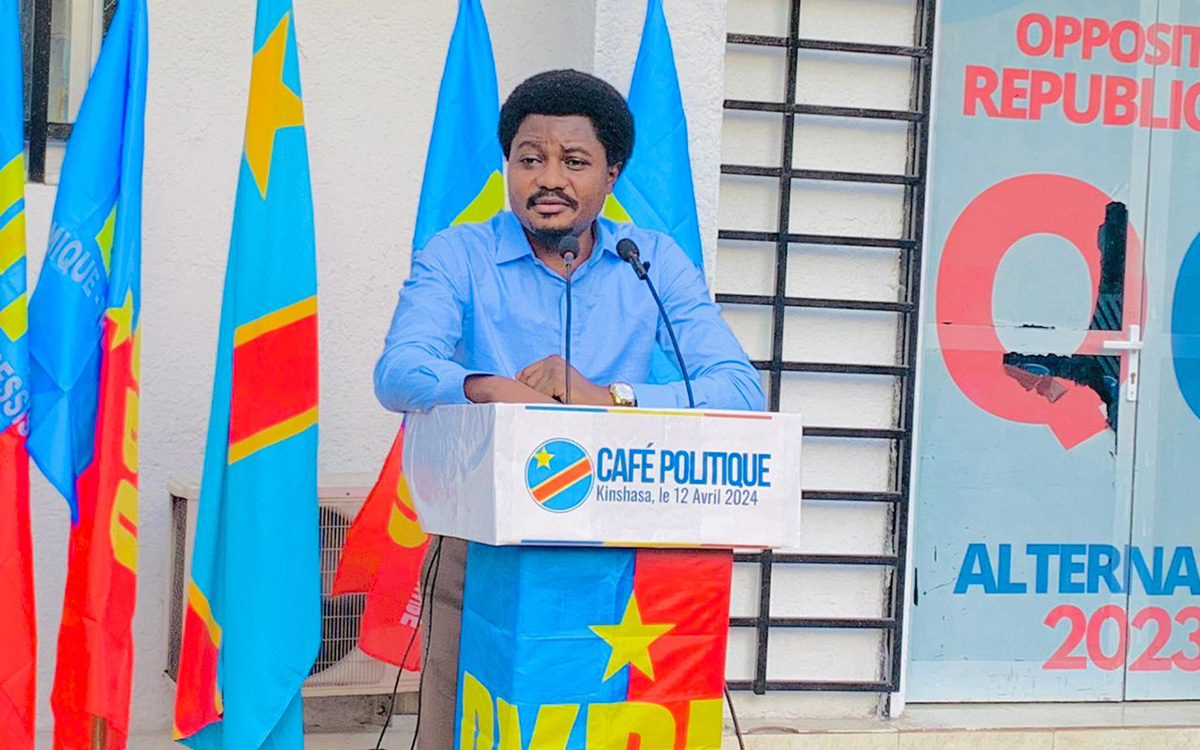
Congolese Justice Minister Constant Mutamba has instructed his country’s prosecutor general to arrest LGBTQ allies.
The newly appointed justice minister in a June 15 communique said the prosecutor general should initiate legal proceedings against people who advocate for the LGBTQ community in Congo.
Although same-sex marriages are constitutionally prohibited, there is currently no law that criminalizes consensual same-sex sexual relations. The communique has raised a lot of eyebrows from social and LGBTQ activists who are asking on what grounds Mutamba issued the communique.
“He could have started by initiating a bill in this direction, but in the current Congolese legislation he is missing the point,” said Jean Claude Katende, a Congolese human rights activist who is the president of the African Association of Human Rights. “If he wants to repress homosexuals, he must initiate a law which must make this behavior an offense and have it punished. He will be arrested for complicity in arbitrary arrests. The constitution is clear, no one can be prosecuted for an act which does not constitute an offense.”
Khelver Hermano, a Congolese social commentator, said the law should not be interpreted based on one person’s emotions.
“LGBT marriage is already not applied in the DRC but the minister wants to incarcerate those who do it informally without a legal basis,” said Hermano. “The law is not interpreted according to our will.”
“Does the penal code in the DRC recognize polygamy? Why don’t we arrest all these known polygamists?” asked Hermano. “Just as polygamists are not prosecuted, we cannot do so against LGBT people.”
Many Congolese people, however, have welcomed the communique, arguing same-sex relations are un-African and unorthodox.
Article 172 of the country’s penal code states a person “who commits a moral crime by exciting, facilitating or promoting to satisfy the passions of others, debauchery or the corruption of persons of either sex under or apparently under the age of 21 years shall be punishable by a prison term of three months to five years or a fine.” Article 176 says a person “who engages in activities against public decency shall be punishable by a prison term of eight days to three years and/or a fine.”
Although not entirely applicable, the prosecutor general can use these two penal code articles to initiate the arrests — the country in recent years has seen some arrests of LGBTQ people.
The June 15 communique is not the first time Mutamba has come out against the LGBTQ community.
Mutamba earlier this year introduced a bill that would criminalize acts of homosexuality. The proposal received widespread support, particularly on social media where many Congolese people described it as a turning point for the country and for the continent at large.
Although parliament has not formally debated the bill, activists are concerned it will pass without many major objections because most MPs have previously said they do not support the LGBTQ community. It remains unclear how the prosecutor general will executive Mutamba’s communique.
Africa
Prominent South African activist elected to country’s parliament
Steve Letsike founded Access Chapter 2

A prominent South African LGBTQ activist has won a seat in the country’s parliament.
Steve Letsike, a lesbian woman who founded Access Chapter 2, a South African advocacy group, is a member of the African National Congress. She is also part of the ANC’s National Executive Committee that determines the party’s direction.
Letsike won a seat in the South African National Assembly in national and provincial elections that took place on May 29.
The ANC lost its parliamentary majority that it had had since Nelson Mandela in 1994 won the South African presidency in the country’s first post-apartheid elections. MPs earlier this month re-elected President Cyril Ramaphosa after the ANC invited the Democratic Alliance and other parties to form a Government of National Unity.
Letsike in a statement to the Washington Blade described her election as “a milestone for the people of South Africa, and also affirmative of our party’s posture that is inclusive and intention to transformation agenda.”
“I am not in parliament for myself but the people that trusted the ANC to send individuals that will put people first,” said Letsike. “In that cohort that includes the LGBTI people like myself. Rooted in the teaching of a just society, that seeks equality and believes in the rule of law. That demand on developmental agenda from a queer lens and clear priorities of the people is important.”
“I am delighted by this task, trust and hope for our people,” she added.
-

 Canada1 day ago
Canada1 day agoToronto Pride parade cancelled after pro-Palestinian protesters disrupt it
-

 Theater4 days ago
Theater4 days agoStephen Mark Lukas makes sublime turn in ‘Funny Girl’
-

 Baltimore3 days ago
Baltimore3 days agoDespite record crowds, Baltimore Pride’s LGBTQ critics say organizers dropped the ball
-

 Sports4 days ago
Sports4 days agoHaters troll official Olympics Instagram for celebrating gay athlete and boyfriend

